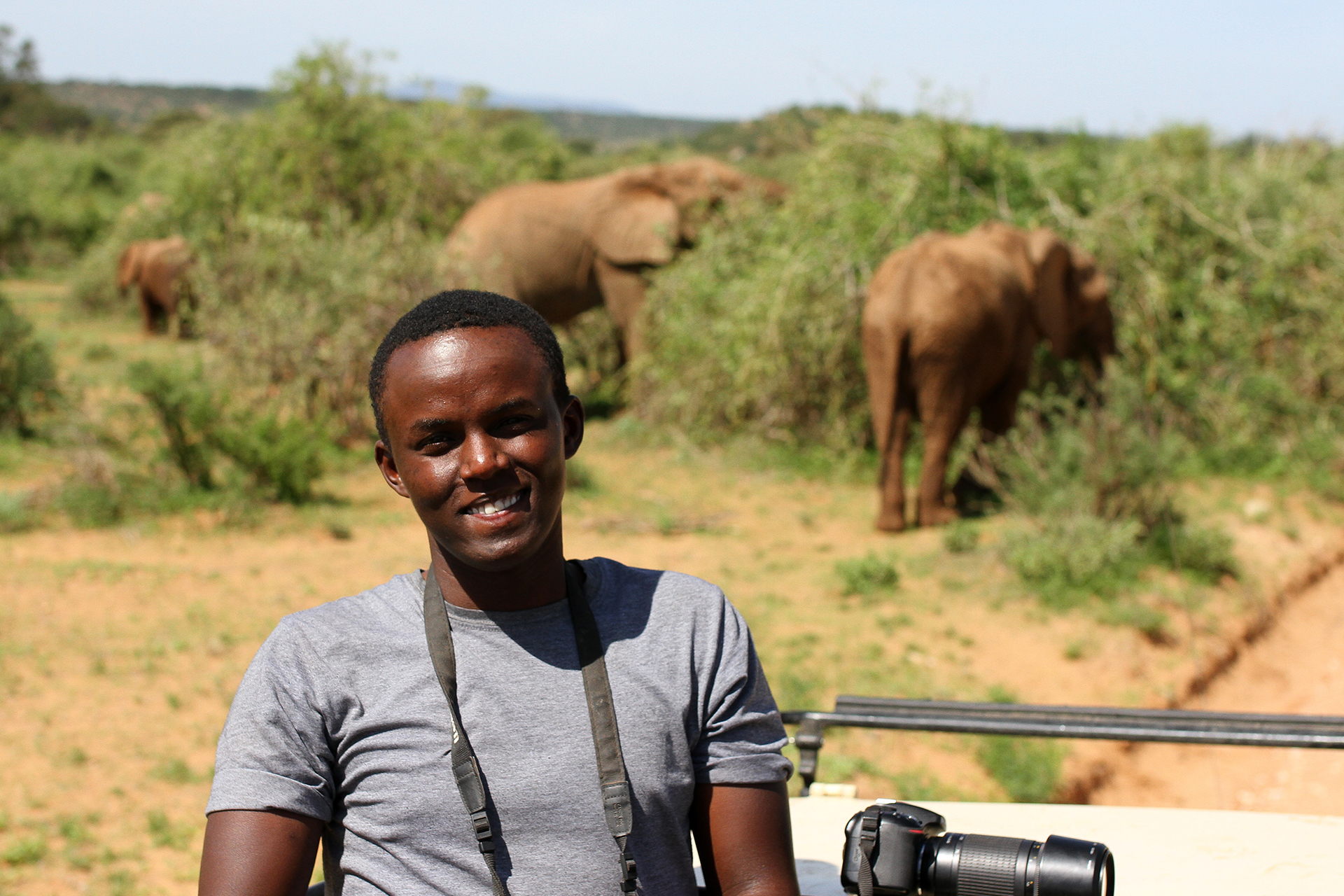
Graduate student Nelson Mwangi, who was born in Kenya, researches elephant conservation based out of the Graduate Degree Program in Ecology. “We are trying to promote human-elephant coexistence,” he said.
Mwangi was recently awarded support from the Wildlife Conservation Network Scholarship program. The WCN is an international organization that protects endangered wildlife by supporting community-based conservationists. This program provides funding for a large part of Mwangi’s graduate education.
Leadership from the nonprofit organization Save the Elephants nominated Mwangi for the WCN Scholarship program. Mwangi has worked in the GIS Department for Save the Elephants since before he came to CSU for graduate school in 2021. In that role, he has helped to track over 300 elephants across Africa.
Through his efforts at Save the Elephants, Mwangi coauthored a 2022 publication on Landscape Dynamics (landDX) an open-access spatial-temporal database for the Kenya-Tanzania borderlands. He contributed to the design of the database.
Informing management decisions
As Mwangi worked with his dissertation adviser George Wittemyer — a professor in the Department of Fish, Wildlife and Conservation Biology — to plan out his research, they chose projects that would inform management decisions.
Elephants move great distances as seasons change, to ensure access to food and water. The access for elephants to move between these areas is called habitat connectivity.
“Infrastructure is developing at such a fast rate that we’re losing habitat connectivity,” said Mwangi. “We’re trying to improve predictions on where the connectivity is and where it will be in the future.”
An advantage of conducting research in Kenya is that most protected areas are not fenced so the elephants can move freely. However, the placement of permanent settlements and infrastructure can decrease habitat connectivity and make it hard for elephants to access key habitats.
“If we can comprehensively understand how elephants use space and how this has changed in the past, maybe we can predict how it will change in the future and make proper management decisions,” said Mwangi.
This understanding can also help make decisions about translocating elephants, such as orphaned elephants to new areas where they can thrive.
Path to a career in conservation
Mwangi grew up wanting to become either a pilot or an aeronautical engineer.
“Either you’re a pilot in Kenya or a doctor: there is more money in that to help your family. We were pushed to try and find careers that were high paying and not necessarily what we wanted to do,” said Mwangi. “So that’s what I wanted to be, but in some sense, it is more what my society wanted me to be.”
Mwangi was accepted as an undergraduate to an aeronautical engineering program at the Technical University of Kenya.
“I took the first ecology class I could, and I was like I don’t want to be a pilot,” said Mwangi. “My heart was not into it.”
After that, Mwangi changed his undergraduate degree program to environmental science. From there, Mwangi pursued internships with Save the Elephants, and he has been involved with the nonprofit since 2016. He is proud to inspire others to take an interest in wildlife.
“My younger sister followed my footsteps. She’s five years younger than me and just finished her undergraduate in wildlife management,” said Mwangi. “She’s working with the county government from where we were raised, Naivasha sub-county. She’s interested in studying vultures.”
Pandemic impacts
Before Mwangi received this WCN scholarship, the financial strain during the beginning of the pandemic directly impacted him as a new graduate student.
“COVID impacted me in a very different way compared to the other graduate students who live in America because I had to get a student visa and a few COVID tests before flying here,” said Mwangi, “which was very expensive, but you know I finally made it to Colorado.”